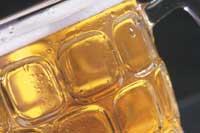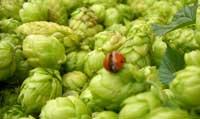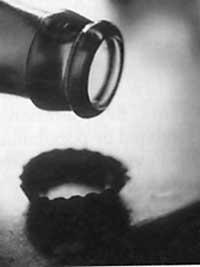Climate change reaches beer
2008/05/20 Lakar Iraizoz, Oihane - Elhuyar Zientzia

The acid, then, does not become a hard plant. It is relatively weak, so it needs a lot of care. As if that were not enough, farmers have begun to say that hops are also affecting climate change and that production is shrinking. Faced with this situation, scientists have begun to seek solutions so that the beer industry does not suffer damage, as this industry moves many millions a year.
The hop, key element
XIV. In the twentieth century, hop was extended as a manufacturing element of beer, and since then the way of making beer has hardly changed. A specific component of hops is responsible for all this: lupulin, a resin produced exclusively by the female flowers of hops. In addition to giving smell and flavor, lupulin has a preservative function. During colonialism, for example, the ships carried the beer barrels without any refrigeration system, and the acids of the hop kept the beer without deteriorating it.

The hops do not grow everywhere, in the world is limited to a certain range of latitudes, since the day only in those latitudes has the hours of light that need the hops flowers. In addition, only in this period can find the necessary conditions: wet soils, hard winters and hot summers. Of course, there are more than one variety and not all have the same needs. For example, those closest to the equator receive more heat than those farther away and are adapted to it.
Due to climate change, hop plants in northern Europe do not seem to find the necessary conditions. According to data published by the British meteorological agency, since 1980 the years are hotter than the previous ones. Some farmers say that the springs are hotter than before and the winters more temperate, which causes the hop plants to germinate too soon, that at a certain moment interrupt the growth and give very few flowers.
Water and new varieties to solve the problem
Researchers from several countries that export hops try to solve this problem. They travel to warmer countries, such as Turkey or South Africa, in search of hops more resistant to heat, to cross with their plants and make harder varieties.

In addition to looking for more resistant varieties, European scientists study the implementation of irrigation systems for hops crops. Until now they were not watered, because with rainwater was enough, but from now on it will be essential to survive in hot summers. The European Commission has already distributed six million euros to farmers who grow hops in Germany to implement crop irrigation systems.
In the United States, irrigation systems have already been implemented. In their breeding center they affirm that the solution has been very effective and that now the plants suffer without problems the heat of the summer. We will see if with these measures in Europe the hops crisis is exceeded. So, so that you don't do the beer, or that, from another point of view, you don't do the pocket of the brewers, all this would mean a huge increase in beer prices.
Published in Deia

Gai honi buruzko eduki gehiago
Elhuyarrek garatutako teknologia





